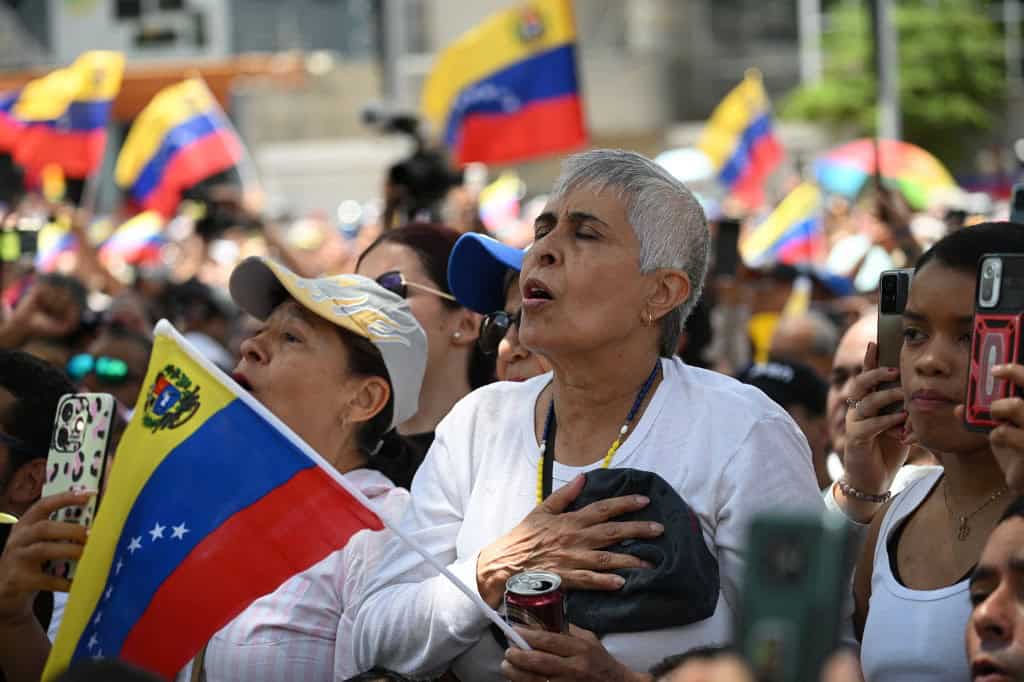Pope Francis called this Sunday to “seek the truth” in Venezuela amid allegations of fraud in President Nicolás Maduro’s re-election, while opposition leader María Corina Machado thanked seven European countries for requesting the publication of the election records.
The pontiff’s call comes after requests from the United States and several Latin American and European countries to publish the records of the disputed presidential elections held on July 28, amid protests that have left at least eleven civilians dead according to human rights organizations, and more than 2,000 detained.
“I make a heartfelt appeal to all parties to seek the truth, act with moderation, avoid any kind of violence, resolve disputes through dialogue, and have in their hearts the true good of the population and not partisan interests,” Francis said to a crowd after the Sunday Angelus prayer in St. Peter’s Square at the Vatican.
Maduro was confirmed by the National Electoral Council (CNE), which aligns with the ruling party, as re-elected president with 52% of the votes against 43% for opposition candidate Edmundo González Urrutia, who was nominated due to a political disqualification that vetoed former congresswoman Machado. The leftist ruler would thus assume a third term that projects him to 18 years in power.
However, the opposition published records on a website that would give González 67% of the votes. The electoral authority has not yet published detailed results of the vote and claims that its system was the target of a “massive hacking.” Maduro and high-ranking officials dismiss the validity of the documents released by the opposition.
Commitment to democracy
After reappearing in public on Saturday at a demonstration in Caracas, having declared herself in “clandestinity,” the opposition leader thanked Germany, Spain, France, Italy, the Netherlands, Poland, and Portugal on Sunday for their “commitment to democracy” following these nations’ request to publish the records of Venezuela’s presidential election.
On Saturday, in a statement published by the Italian government, these seven European countries expressed “strong concern” and asked the authorities to “quickly publish all records” of the elections to ensure their “full transparency.”
“On behalf of Venezuelans, I thank you for this important statement,” Machado wrote on the social network X. “We support the demand for the records we have presented to be verified as soon as possible, at an international and independent level,” she added.
The United States, which maintains financial sanctions against Venezuela to pressure Maduro, has already backed the opposition by maintaining that there is “overwhelming evidence” of a victory for González Urrutia.
Peru, Argentina, Uruguay, Ecuador, Costa Rica, and Panama have also recognized González Urrutia as the winner of the presidential election.
Countries like Brazil, Colombia, and Mexico are trying to promote a political agreement. Russia and China, in contrast, supported the Chavista ruler.
Guaidó 2.0
Before a demonstration of supporters that reached the Miraflores presidential palace, Maduro denounced on Saturday that a plan to “usurp” power was underway.
“It will not be accepted, under national laws, that there is an attempt to usurp the presidency again,” Maduro warned, drawing a parallel with the international recognition received in 2019 by opposition leader Juan Guaidó, currently exiled in the United States after a failed offensive to oust the socialist ruler. In this vein, he labeled González Urrutia as “Guaidó 2.0.”
Guaidó, then head of Parliament, was recognized as “interim president” by Washington and about fifty governments that considered Maduro’s re-election in 2018 fraudulent, in elections boycotted by the opposition.
However, Machado redoubled her challenge with her reappearance. González Urrutia did not participate in the opposition mobilization. “We are not going to leave the streets,” stated the leader, who after the march got on a motorcycle and quickly disappeared to her place of refuge.
Maduro, who has stated that Machado and González Urrutia should “be behind bars,” said that “police-military patrols” will continue to “protect the people.”






